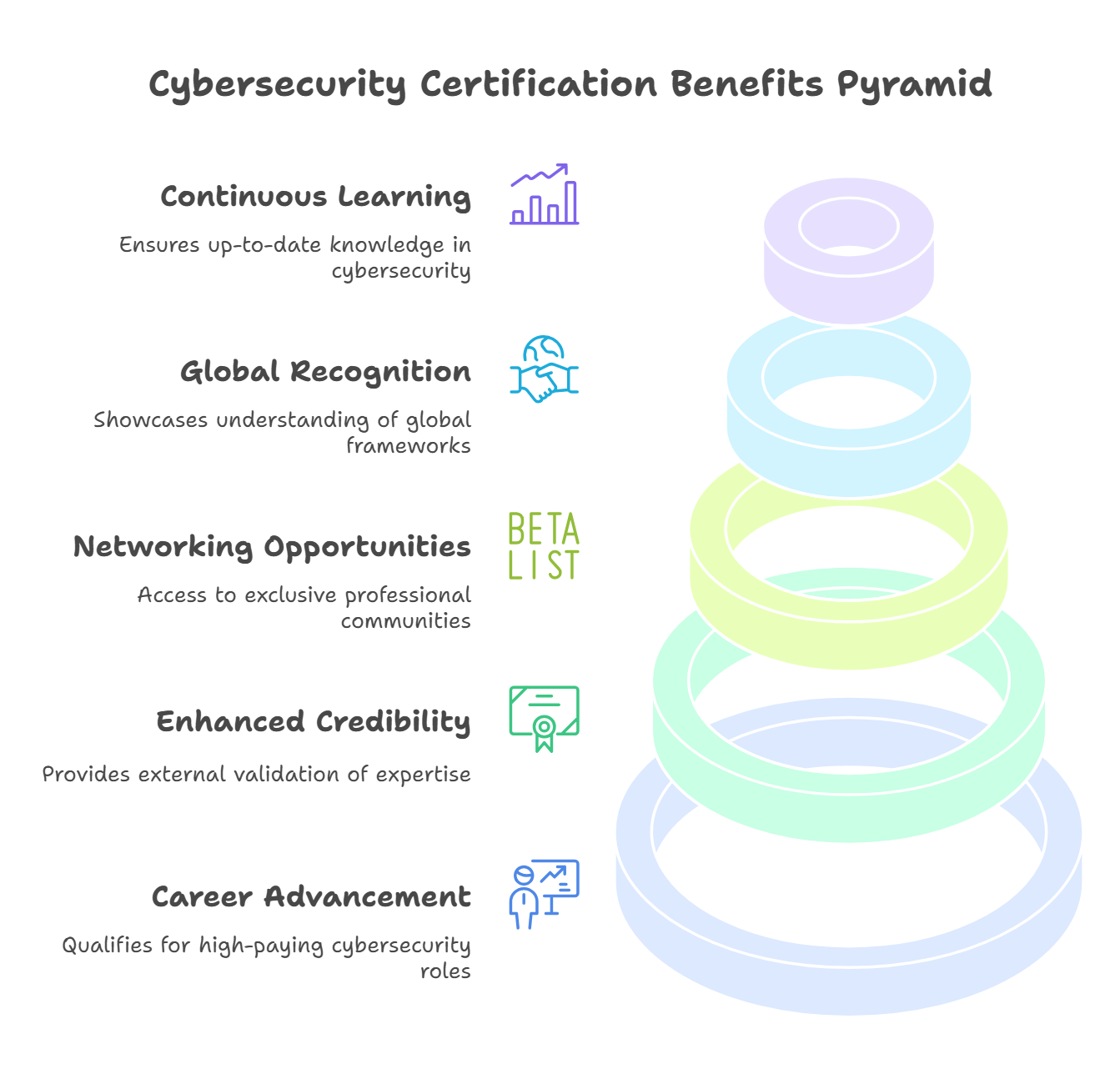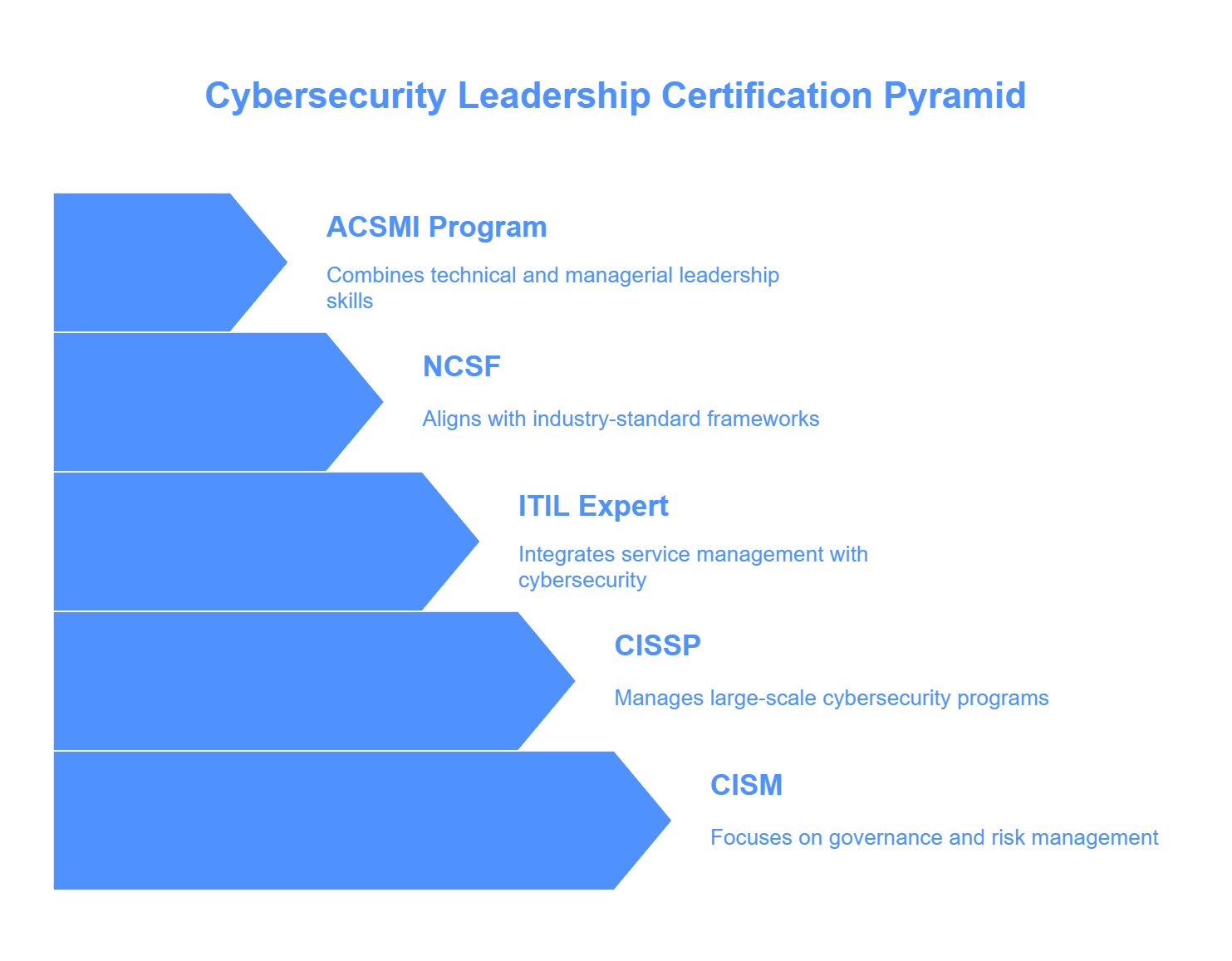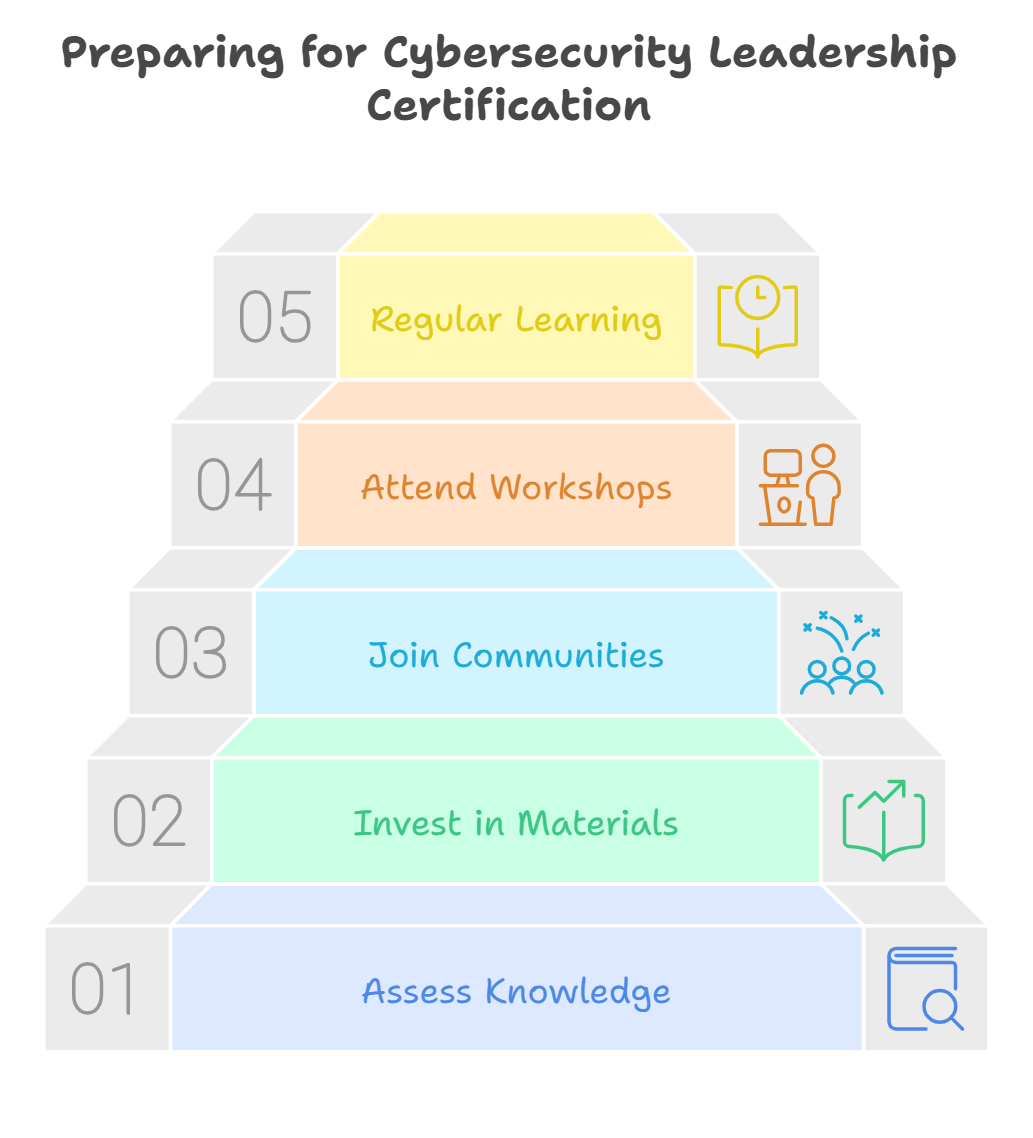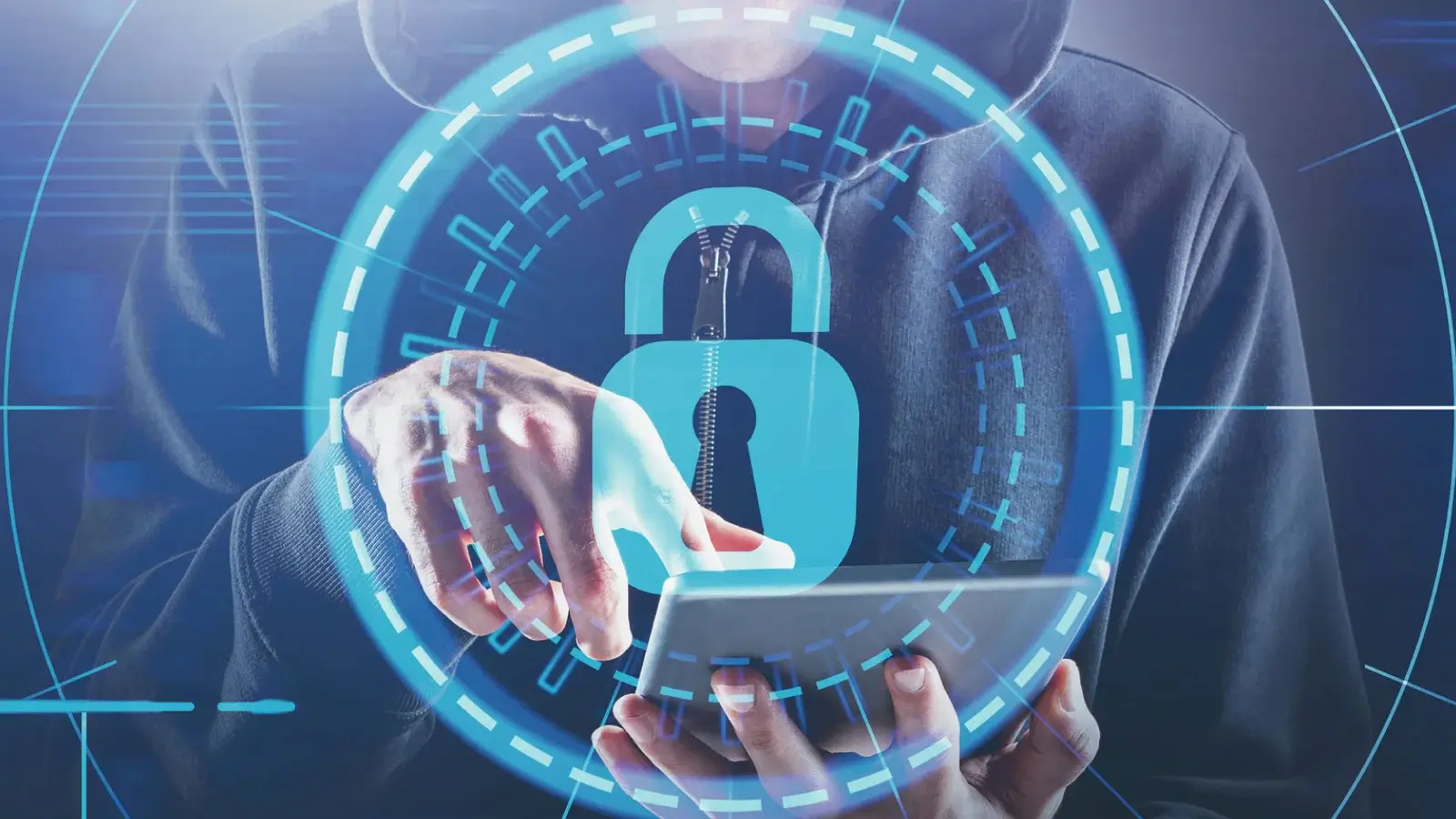Table of Contents
The growing importance of cybersecurity is undeniable, especially in an age where digital threats are becoming increasingly sophisticated and pervasive. This surge in cybercrime has led to the growing demand for not only skilled technical professionals but also cybersecurity leaders who can design, implement, and manage security strategies at scale. This is where Cybersecurity Leadership Certification Proofpoint comes in. Whether you’re looking to elevate your career or transition from a technical role into a leadership position, obtaining a leadership cybersecurity certification can provide the tools and recognition needed to thrive in the field. In this blog, we’ll explore everything you need to know about cybersecurity leadership certifications, the top certifications for leadership in cybersecurity, and how you can prepare for them.
What Is a Cybersecurity Leadership Certification?
A cybersecurity leadership certification validates your ability to manage cybersecurity programs and lead teams in effectively securing enterprise-level systems. It focuses on a range of strategic and technical topics, such as incident response planning, governance, risk management, compliance, and cloud security policies. Leadership certifications are designed for professionals in managerial or decision-making roles and are a critical step for those looking to advance into executive cybersecurity positions. Unlike technical certifications like CompTIA Security+ or CEH (Certified Ethical Hacker), cybersecurity leadership certifications focus on the broader view of cybersecurity operations and managing teams tasked with maintaining security and compliance.
The role of cybersecurity leaders in any organization is evolving. No longer is cybersecurity simply about defending against threats—leaders need to manage complex systems, stay ahead of emerging risks, and ensure their organization complies with an ever-changing landscape of laws and regulations.
Top Benefits of Cybersecurity Leadership Certification
The benefits of earning a cybersecurity leadership certification are extensive. Below are the top reasons why you should consider pursuing one:

1. Career Advancement
One of the most compelling reasons to pursue a cybersecurity leadership certification is the potential for career advancement. A leadership certification qualifies you for higher roles that require both technical knowledge and strong leadership skills, such as:
-
Chief Information Security Officer (CISO)
-
Cybersecurity Program Manager
-
IT Security Manager
-
Cybersecurity Director
These positions command significant salaries, typically ranging from $120,000 to $200,000 annually, and offer opportunities for executive leadership in the cybersecurity space. By becoming certified, you position yourself for these coveted roles.
2. Enhanced Credibility
A leadership certification provides external validation of your expertise in managing cybersecurity programs, aligning security frameworks with business goals, and leading teams through high-stakes security incidents. Certifications such as CISM (Certified Information Security Manager) and CISSP (Certified Information Systems Security Professional) are globally recognized and respected by employers. They demonstrate that you not only understand cybersecurity but can also execute and manage large-scale security operations across an organization.
3. Networking Opportunities
Cybersecurity leadership certification programs often provide access to exclusive communities of professionals, where you can interact with industry leaders, mentors, and peers. These communities offer valuable networking opportunities, insights into current trends, and an exchange of best practices that can help you grow in your leadership role.
4. Global Recognition
The ability to operate in complex regulatory environments and manage security programs for global organizations is increasingly in demand. A leadership certification showcases your understanding of global cybersecurity frameworks and regulatory compliance, making you a prime candidate for multinational organizations. As cybersecurity threats continue to transcend borders, cybersecurity leaders with this level of expertise are highly sought after in today’s global job market.
5. Continuous Learning and Growth
Cybersecurity is a fast-paced, ever-evolving field. Leadership certifications ensure you stay ahead of the curve by continually updating your knowledge. Most programs are designed to evolve with changes in the cybersecurity landscape, so certified professionals can stay up to date with the latest challenges, tools, and frameworks. This continuous learning ensures that your skills remain relevant and in demand.
Leading Options for Cybersecurity Leadership Certifications
Several certifications offer distinct advantages to professionals aiming to lead in the cybersecurity space. Here is a Guide to Cybersecurity Certification Pathway, highlighting some of the top options for cybersecurity leadership certifications:

1. Certified Information Security Manager (CISM)
Designed for IT professionals aspiring to transition into leadership roles, CISM focuses on governance, program development, risk management, and incident response. This certification equips you with the skills needed to design, implement, and manage enterprise-wide security programs. It’s ideal for individuals looking to lead teams and manage complex cybersecurity operations.
2. Certified Information Systems Security Professional (CISSP) – Management Concentration
The CISSP is one of the most widely recognized certifications in the cybersecurity field. The Management Concentration of this certification focuses specifically on managing large-scale cybersecurity programs and developing strategies for protecting information systems. It emphasizes strategic thinking, risk management, and governance, making it perfect for professionals in leadership roles.
3. ITIL Cybersecurity Expert
The ITIL Cybersecurity Expert certification is designed for professionals who specialize in service management integrated with cybersecurity measures. It’s a highly regarded certification for individuals who need to manage IT services in a secure environment, ensuring that service continuity is maintained while addressing security risks.
4. NIST Cybersecurity Framework (NCSF) Certification
The NIST Cybersecurity Framework (NCSF) is one of the most widely adopted cybersecurity frameworks globally. This certification is designed for leaders who need to align their organization with industry-standard frameworks, ensuring that they meet compliance requirements and defend against cyber threats effectively.
5. ACSMI’s Cybersecurity Leadership Program
The ACSMI Cybersecurity Leadership Program offers over 400 comprehensive modules, combining both technical and managerial skills. It provides a holistic approach to leadership, blending governance, compliance, and technical security protocols. This program is designed to prepare professionals for leadership roles in large-scale cybersecurity operations, ensuring they are well-equipped to address modern security challenges.
How to Prepare for a Cybersecurity Leadership Certification
Achieving a cybersecurity leadership certification is a journey that requires both technical expertise and strategic thinking. Here’s how to prepare for the challenge:

1. Assess Your Current Knowledge
Before diving into certification, it’s essential to assess your current understanding of cybersecurity. Identify areas where you need additional knowledge or experience. Understanding the syllabus of your desired certification will help you recognize areas of strength and weakness.
2. Invest in the Right Study Materials
To succeed in cybersecurity leadership certification exams, you need to invest in quality study materials. Many organizations, including ISACA and (ISC)², provide official study guides, practice exams, and sample scenarios. These resources are specifically designed to help you grasp the necessary concepts for leadership roles in cybersecurity.
3. Join Communities of Professionals
Cybersecurity leadership can be complex, and the right community can provide guidance, insights, and study tips. Join platforms such as ISACA’s community for CISM aspirants, LinkedIn groups, or forums dedicated to cybersecurity leadership. Networking with others pursuing the same goals can provide invaluable support.
4. Participate in Leadership Workshops
Many organizations offer workshops for aspiring cybersecurity leaders. These workshops give you hands-on experience in solving complex, real-world problems, allowing you to build your leadership skills and apply your knowledge to actual scenarios.
5. Dedicate Time for Regular Learning
Cybersecurity leadership certifications often require a combination of theoretical understanding and practical knowledge. It’s essential to dedicate regular time to study and review the material to ensure you’re well-prepared for your certification exam.
Cybersecurity Leadership Certification and Industry Demand
The demand for cybersecurity leaders is growing exponentially. With cyber threats escalating and regulatory frameworks becoming more complex, organizations need leaders who can effectively navigate the intersection of business, technology, and compliance. By 2025, leadership roles in cybersecurity are forecasted to grow by over 20% due to increasing threats and regulatory pressures in industries such as healthcare, finance, and technology.
The global nature of cyber threats means that leadership roles in cybersecurity will be in high demand worldwide. Therefore, a cybersecurity leadership certification will set you up for success in an industry that is only expected to continue growing.
Final Thoughts
Earning a cybersecurity leadership certification is a significant investment in your career, positioning you as an expert capable of managing complex cybersecurity programs and leading teams through challenges. Whether you’re looking to transition into leadership or enhance your existing skills, these certifications provide the knowledge, credibility, and tools needed to succeed.
In the competitive and evolving field of cybersecurity, staying ahead of threats requires more than just technical know-how—it demands strong leadership. If you want to lead your organization in protecting sensitive data and navigating cybersecurity risks effectively, a cybersecurity leadership certification is your first step toward career success. And for those looking for an in-depth, hands-on learning experience, the ACSMI Cybersecurity Leadership Program provides the tools and modules necessary to take your career to the next level.
Don’t wait—invest in your future today with a cybersecurity leadership certification!
FAQs About Cybersecurity Leadership Certification
Who should pursue a cybersecurity leadership certification?
It’s ideal for IT professionals, cybersecurity analysts, system architects, and risk managers who are ready to step into leadership roles and manage complex security strategies.
What skills does a cybersecurity leadership certification emphasize?
The certification focuses on governance, risk management, compliance, incident response planning, team management, and strategic thinking.
How does the ACSMI Cybersecurity Leadership Program compare to CISM?
ACSMI offers more than 400 modules, emphasizing both technical expertise and leadership skills, while CISM is more focused on governance, risk management, and compliance.
How much does earning a cybersecurity leadership certification cost?
Costs vary depending on the program, but certifications like CISM can cost around $575 for members, and ACSMI certifications typically start at around $599.
Does a cybersecurity leadership certification require a degree?
Not usually, but most certifications recommend prior experience in IT management or cybersecurity. Programs like CompTIA Security+ can serve as a prerequisite for advanced certifications.
What are the career benefits of a cybersecurity leadership certification?
The certification prepares you for leadership roles such as Chief Information Security Officer (CISO), IT Security Manager, and Cybersecurity Program Director, with significant salary increases and career advancement.
Are there online options for cybersecurity leadership certification exams?
Yes, many programs such as CISM and CISSP offer remote proctored exams, allowing you to complete your certification exams online.
Do cybersecurity certifications expire?
Most certifications, including CISM, require periodic renewal, often every three years, through continuing education or re-examination.

Leave a Reply